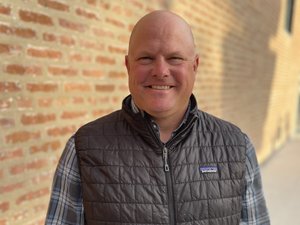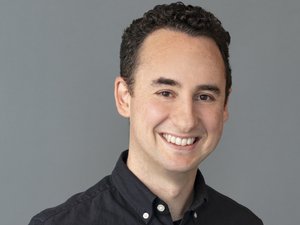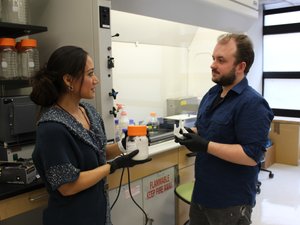
There are a lot of things on a teacher's schedule in any given day: lesson planning, project preparation, managing a class, coordinating with school leadership, and--oh yeah-- teaching.
Though edtech products often promise to streamline these processes through extensive learning management systems, navigating these platforms can take time and effort away from teaching. With this in mind, Lanny Bose, a former middle school educator and current edtech entrepreneur, wants his product in front of teachers as little as possible.
"The more time they spend looking at their computer screen they aren't managing their classroom," he said. "I don't want teachers to spend an hour a day looking at my software, I want them to spend a minute five times per day looking at my software."
Bose recently launched Cardstock, a platform that zeroes in on one major pain point for teachers: communicating with parents. Usually when a teacher has to reach out to a student's parent, the method to do so is a phone call. This can be time consuming, so teachers tend to focus on calling parents whose children are in trouble or are academically at risk. Bose, who recently went through Starter League in Chicago, wanted there to be a place where teachers can communicate quick positive messages, or reminders about events or assignments.
The platform is really a messaging system, in which teachers can jot off quick notes to parents that go through as text messages. Parents can then respond, and the message will go to the teacher's internal dashboard (no more giving out personal numbers), and there is a Cardstock-generated phone number that families can use as well. The system will also nudge a teacher if they haven't corresponded with a certain family in a while. There is also a translation feature so a teachers' message can be delivered in a language that is more comfortable to a parent. Parents can then respond in any language, and the tool will translate it back to English (or any preferred language) for the teacher to read.
Cardstock intro from Lanny Bose on Vimeo.
The idea came from his experience as a middle school social studies teacher and principal in Houston, Texas. As edtech became increasingly available, he was dissatisfied with the quality of products, especially from large-scale enterprise software that offered a plethora of services. "Something as simple as setting up a grade book requires three emails to tech support," he said.
A more focused approach can provide faster and more meaningful support, he argues. Parent communication was an area he always felt was inefficient, given the time required for phone calls and the language barrier-- half of his students in Houston came from a home where English wasn't the language spoken at home.
So far, Cardstock is running in five schools across Houston and Austin. Though Google translate isn't the most accurate of translation options, in beta testing this spring he said that it vastly improved teachers' ability to send messages that may not have been relayed in the past. In addition, teachers are finding ways to use it that speak directly to the needs of their classroom and students. One teacher used it as an intervention tool for 12 students struggling with behavior and academic issues: she used Cardstock to send an update everyday for each student, whether it was a note on their behavior, a reminder to finish an assignment, or a small word of praise.
Next steps for Cardstock include building out features so teachers across a grade level can see how other teachers are communicating with parents, and a feature that includes communication tools for school administrators.
On the business side, right now Bose is selling both to individual teachers and districts: $10 per teacher per month, or $100 for the year.
Bose has a background in education, business, and tech. He got his MBA through an education entrepreneurship program at Rice University in Texas, and learned to code through Starter League last year (he is originally from Schaumburg). He said he was drawn to the tech community in Chicago, as well as the mentors built into the Starter League program. The experience certainly paid off: Bose coded all of Cardstock himself.
"I was reading the Starter [League] website and having this realization-- I could do this," he said. "If I can learn how to teach kids at 22, then I can learn how to code...It can't be more daunting than 12 year olds."








